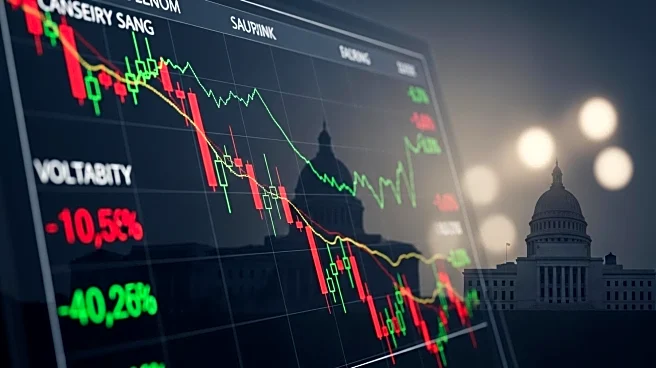What's Happening?
The U.S. stock market is experiencing a global selloff as traders react to the ongoing government shutdown and growing doubts about the Federal Reserve's future rate cuts. The S&P 500 saw a 0.28% decline, and U.S. futures are down, reflecting a lack of enthusiasm among traders. The shutdown, now in its 10th day, is expected to have a negative economic impact, with increased unemployment and delayed payroll reports. Additionally, the release of minutes from the Federal Open Market Committee suggests that the Fed may not proceed with two more rate cuts this year, contrary to Wall Street's expectations.
Why It's Important?
The prolonged government shutdown and uncertainty surrounding the Federal Reserve's monetary policy are creating a negative sentiment on Wall Street. This situation could lead to increased unemployment and economic instability, affecting workers who miss paychecks. The potential delay in rate cuts by the Fed could also impact stock prices, as cheaper money typically inflates stock values. The global selloff, including declines in Asian and European markets, highlights the interconnectedness of economies and the ripple effects of U.S. policy decisions.
What's Next?
The government shutdown is expected to continue, with traders betting on an end date of October 15 or later. The economic impact will likely worsen as more workers miss paychecks. The Federal Reserve's cautious approach to rate cuts may lead to further market volatility. Stakeholders, including political leaders and businesses, will need to navigate these challenges and assess the broader economic implications.
Beyond the Headlines
The shutdown and Fed uncertainty may lead to long-term shifts in economic policy and market strategies. Businesses reliant on government contracts or affected by interest rate changes will need to adapt to the evolving landscape. The situation underscores the importance of stable governance and clear monetary policy in maintaining economic confidence.









